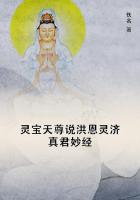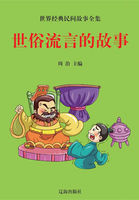THE FRENCH PUBLIC.
I.THE NOBILITY.
The Aristocracy. - Novelty commonly repugnant to it. -Conditions of this repugnance. - Example in England.
This public has yet to be made willing to be convinced and to be won over; belief occurs only when there is a disposition to believe, and, in the success of books, its share is often greater than that of their authors. On addressing men about politics or religion their opinions are, in general already formed; their prejudices, their interests, their situation have confirmed them beforehand; they listen to you only after you have uttered aloud what they inwardly think.
Propose to them to demolish the great social edifice and to rebuild it anew on a quite an opposite plan: ordinarily you auditors will consist only of those who are poorly lodged or shelterless, who live in garrets or cellars, or who sleep under the stars, on the bare ground in the vicinity of houses. The common run of people, whose lodgings are small but tolerable, dread moving and adhere to their accustomed ways. The difficulty becomes much greater on appealing to the upper classes who occupy superior habitations; their acceptance of your proposal depends either on their great delusions or on their great disinterestedness. In England they quickly foresee the danger.
In vain is philosophy there indigenous and precocious; it does not become acclimatized. In 1729, Montesquieu writes in his memorandum-book: "No religion in England; four or five members of the House of Commons attend mass or preaching in the House. . . . When religion is mentioned everybody begins to laugh. A man having said:
I believe that as an article of faith, everybody laughed. Acommittee is appointed to consider the state of religion, but it is regarded as absurd." Fifty years later the public mind undergoes a reaction; all with a good roof over their heads and a good coat on their backs[1] see the consequence of the new doctrines. In any event they feel that closet speculations are not to become street preaching. Impiety seems to them an indiscretion; they consider religion as the cement of public order. This is owing to the fact that they are themselves public men, engaged in active life, taking a part in the government, and instructed through their daily and personal experience. Practical life fortifies them against the chimeras of theorists; they have proved to themselves how difficult it is to lead and to control men. Having had their hand on the machine they know how it works, its value, its cost, and they are not tempted to cast it aside as rubbish to try another, said to be superior, but which, as yet, exists only on paper. The baronet, or squire, a justice on his own domain, has no trouble in discerning in the clergyman of his parish an indispensable co-worker and a natural ally.
The duke or marquis, sitting in the upper house by the side of bishops, requires their votes to pass bills, and their assistance to rally to his party the fifteen hundred curates who influence the rural conscience. Thus all have a hand on some social wheel, large or small, principal or accessory, and this endows them with earnestness, foresight and good sense. On coming in contact with realities there is no temptation to soar away into the imaginary world; the fact of one being at work on solid ground of itself makes one dislike aerial excursions in empty space. The more occupied one is the less one dreams, and, to men of business, the geometry of the " Contrat Social'
is merely intellectual gymnastics.
II.CONDITIONS IN FRANCE.
The opposite conditions found in France. - Indolence of the upper class. - Philosophy seems an intellectual drill. - Besides this, a subject for conversation. - Philosophic conversation in the 18th century. - Its superiority and its charm. - The influence it exercises.
It is quite the reverse in France. "I arrived there in 1774,"[2]
says an English gentleman, "having just left the house of my father, who never came home from Parliament until three o'clock in the morning, and who was busy the whole morning correcting the proofs of his speech for the newspapers, and who, after hastily kissing us, with an absorbed air, went out to a political dinner. . . . In France I found men of the highest rank enjoying perfect leisure.
They had interviews with the ministers but only to exchange compliments; in other respects they knew as little about the public affairs of France as they did about those of Japan; and less of local affairs than of general affairs, having no knowledge of their peasantry other than that derived from the accounts of their stewards.
If one of them, bearing the title of governor, visited a province, it was, as we have seen, for outward parade; whilst the intendant carried on the administration, he exhibited himself with grace and magnificence by giving receptions and dinners. To receive, to give dinners, to entertain guests agreeably is the sole occupation of a grand seignior; hence it is that religion and government only serve him as subjects of conversation. The conversation, moreover, occurs between him and his equals, and a man may say what he pleases in good company. Moreover the social system turns on its own axis, like the sun, from time immemorial, through its own energy, and shall it be deranged by what is said in the drawing-room? In any event he does not control its motion and he is not responsible. Accordingly there is no uneasy undercurrent, no morose preoccupation in his mind.
Carelessly and boldly he follows in the track of his philosophers;detached from affairs he can give himself up to ideas, just as a young man of family, on leaving college, lays hold of some principle, deduces its consequences, and forms a system for himself without concerning himself about its application[3].















